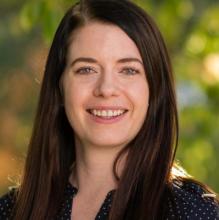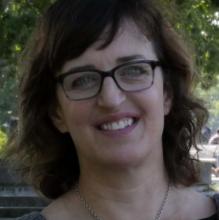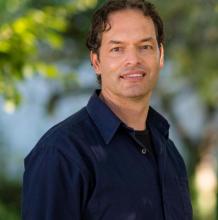As part of my doctoral research, I look at how contemporary forms of labour migration in Mustang, Nepal transform local livelihoods in relation to class, gender, political subjectivity, and ecology.
Research Description
My work focuses on international labour migration through ethnographic studies in Nepal, Northeast India, and the United States. As part of my doctoral research, I look at how contemporary forms of migration among high mountain communities in the Himalayas transform local livelihoods in relation to class, gender, political subjectivity, and socio-ecological change. I am particularly interested in how migrant returnees engage with broader identity-based movements and economic transformation in South Asia, and how these experiences reconfigure notions of value at home.
What does being a Public Scholar mean to you?
I believe fulfilling this role as a Public Scholar means to be curious and aware of the possibilities that reside outside the academy, and remain attentive to the ways in which our research can be made legible and useful to those we work with.
In what ways do you think the PhD experience can be re-imagined with the Public Scholars Initiative?
There is a growing need across academic institutions to ‘rethink’ graduate education in a way that provides students with the necessary skills to pursue careers both within and outside the academy. Towards this end, the Public Scholars Initiative caught my attention due to the program's similar aim to promote rigorous scholarship, and their support of interdisciplinary and creative approaches to doctoral research. I similarly believe it is important to foster collaborative research methodologies with the communities and environments in which we work. I find the use of visual ethnography including photography and filmmaking helpful to promote critical dialogue surrounding development and social change- of which can enable long-term and sustainable partnerships. In doing so, I conduct my research with an underlying motivation to connect to that of policy, civil society, and scholarly debates.
How do you envision connecting your PhD work with broader career possibilities?
My doctoral research will provide the foundation for my continued work with migrants in Nepal and other parts of South Asia. In addition to my work in academia, I aim to be involved with organizations and institutions as a means of conducting policy-relevant community-based research to understand the impacts migration has on mountain communities, and those whose cultural identities, economic systems, and political recognition are profoundly impacted by globalization. Through these partnerships, I intend to align my research to the values of the communities themselves while promoting the need for diverse forms of scholarship that contribute to pressing global concerns.
How does your research engage with the larger community and social partners?
I intend for my research and visual media projects to become useful tools for migrant communities and catalysts of dialogue between migrants, scholars, and policy-makers. It is my hope that through this project, my participation will lead to long-term collaborations with other students that will facilitate purposeful learning in the pursuit of new and innovative approaches to the PhD experience.
Why did you decide to pursue a graduate degree?
My incentive to pursue a PhD emerged from my previous research in Nepal in the fall of 2016 during which time I conducted ethnographic research concerning the transformation of ethnic identities in relation to development processes. My interest and curiosity for high mountain communities in the Himalayas lead me to the work of my current supervisor, Dr. Sara Shneiderman, and others in the Anthropology and Geography departments at UBC with whom I now work.
Why did you choose to come to British Columbia and study at UBC?
My decision to attend UBC was based on the university’s commitment to research, community, and social impact, all of which are important to me both personally and academically. The Anthropology department in particular offered a program through which I could pursue my individual research interests and learn from a group of diverse students and faculty. Solidifying this decision was the campus’s geographical location along the western coast of North America situated between the ocean and mountains, a place I’ve always called home.
Being a Public Scholar means to remain curious and aware of the possibilities that reside outside the academy, and a commitment to notice other worlds that have previously been ignored or damaged. To do so requires an underlying motivation to connect these experiences to that of policy, civil society, and scholarly debates.




